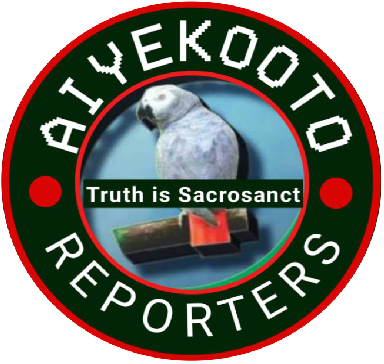Today, our Make Nigeria Better series takes us to Kano State to examine what economic potential it has. We look at what could be in the state with the largest economy in northern Nigeria
[1] Kano State apparently has the second largest economy in Nigeria after Lagos. Many Nigerians have forgotten that during World War Two, their country was the world’s largest groundnut producer. Thanks to Alhaji Alhassan Dantata, it was Nigerian peanuts that helped sustain allied troops during the conflict
[2] When British, American and Canadian troops hit the Normandy beaches in June 1940, they had Nigerian-grown groundnuts in their packs as part of their rations. The British Foreign Office even produced a poster acknowledging our contribution to the allied victory. How Kano State did not expand on that is totally beyond me
[3] I for one believe that if they did, Kano State would have carved out an unassailable niche in the global edible nuts market, kind of like how Malaysia and Indonesia have sewn up the palm oil market today
[4] Today, Nigeria is the world’s third largest groundnut producer behind China and India. We have an annual crop of about 3m tonnes but alas, the revenue we generate from it is still minuscule because we still sell raw nuts rather than process them and export finished products. Do you know that the global edible nuts market is worth about $1.3trn. Nigeria is fortunate to be able to grow every single nut on earth including coconuts, cashews, macadamia nuts, shea nuts, groundnuts, pistachio nuts, etc. Kano should be the epicentre of a thriving trade
[5] One of the beauties of edible nuts is that they have a variety of end products, offering multiple revenue streams. Take groundnuts for instance, you can produce groundnut oil, groundnut meal for animal feed, table peanuts, nuts for use in chocolate products, etc. You can also use the husk of the nut as a base for manufactured products. Kano, Rano, Dawakin Tofa, Tundun Wada, etc, should all have thriving oilseeds industries
[6] Kano City has also been a historic tourist centre. Interesting sites in the metropolis include Kurmi Market established in the 15th century, Kano’s centuries-old city wall, Gidan Rumfa (Emir’s Palace), Kano Zoo, Dala and Gwauron Dutse, Kano Museum, Bashir Tofa Mosque and Gidan dan Hausa Museum. Our Kano State government needs to step in and develop this sector of the economy
[7] Furthermore, many large markets exist within Kano metropolis today, such as Kurmi Market, Kantin Kwari Market, Sabon Gari Market, Dawanau Market, Kofar Wanbai Market, Galadima Market, Yankura Market and Bata Market. They tend to specialise in a certain product, such as textiles or grain. What the Kano State government needs to do is step up this specialisation
[8] Other crops grown across Kano State include millet, cowpeas, sorghum, maize, rice, cotton, sesame seed, soybean, garlic, gum arabic, chili pepper, etc. It is imperative that the Kano State government gets a food processing industry up and running
[9] Historically, Kano has always been a centre for textiles, leather tanning, footwear, cosmetics, plastics, enamelware and ceramics. All these industries need to be recreated by the Kano State government in tandem with the private sector
[10] Most Nigerians may be unaware of the fact that Kano State has an abundance of solid minerals including, cassiterite, copper, gemstone, , glass-sand, lead/zinc, pyrochinre and tantalite. Processing plants are desperately needed to turn these raw materials into finished products








